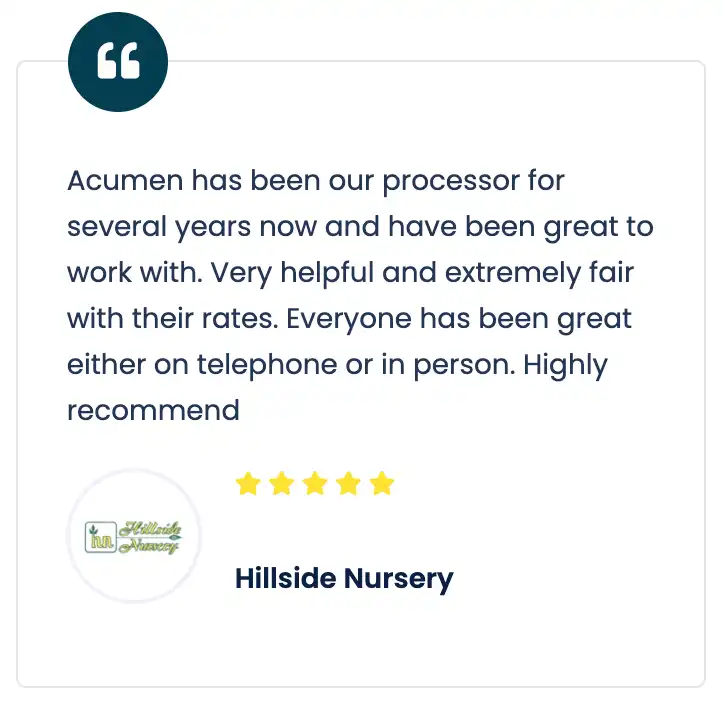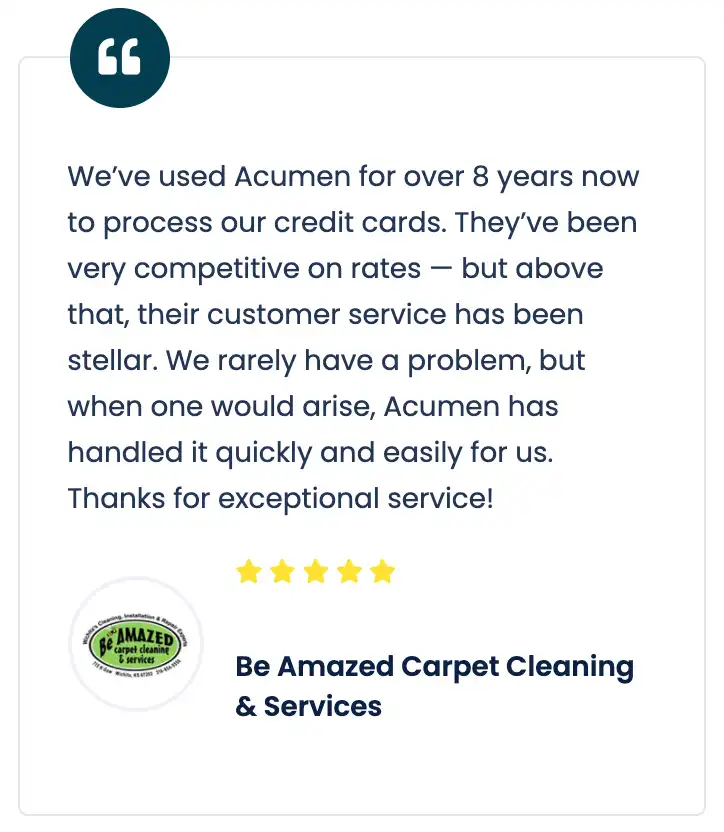Know how payment processors price their services before making a switch
Card swipes have shaped the way we pay.
Nearly every business needs a way to accept credit and debit card payments. Not only because it’s the most convenient method. But it’s also the preferred method — by customers and merchants alike. Every day, fewer people pay by cash.
It’s hard to pass up convenience. But even more, a business without a credit card processor is turning away sales. Accepting credit cards is costly for merchants, with the processor taking a bite out of every transaction. But it’s necessary. No matter how you spin it, there’s no ignoring the role of a credit card processor in your business.
Credit card processing is a cost of doing business. Today, we’re more price-oriented than we are relationship-oriented, especially with credit card processing services. This concept is well-known by both parties. Instead of hiding price information, I think it’s important to acknowledge and recognize how price works.
I think it’s important for you, the customer, to know exactly how credit card processors structure their fees. Insider’s knowledge of the inner-workings of fee structures will give you a leg up on how to score the best deal with a payment processor.
Not all fees are guarantees
About every week, I see advertisements for cable. Too good to be true plans. For just a few dollars a week, I can access hundreds of channels. Should I do it?
Every time I have to remind myself the reason I cut cable the last time. Quick backstory: Mere months into signing on the dotted line, my cable plan was no longer a few dollars a week. All of a sudden, what was once equivalent to the price of a latte every week was now $100+. Wait, what?
It’s called an introductory rate. Sadly, it’s not exclusive to cable companies. Introductory rates are just as commonplace among payment processors as they are with cable companies. It’s not always easy to identify introductory rate offers — and that’s kind of the point. These rates are flashy and offered for a limited time. Intentionally, these offers are designed to get a signature right then and there.
Taking a loss to please the boss
Organizations that offer an introductory rate have one intention: getting you to sign on the dotted line. And they’ll pull out all the ropes to make it happen. Usually, this practice involves a loss leader, where something is sold below market cost to stimulate other sales.
Think of Costco’s $5 rotisserie chickens. You and I and Costco all know a chicken should cost more than $5. Costco is willing to take a loss on the chickens, because they’ll generate a profit on their other goods.
Others, even payment processors, follow the same practice. Every business chooses its own loss leader. Loss leading is time-honored. Its presence is common everywhere. Payment processing is highly competitive, and loss leading is all about generating traffic.
Discovering a loss leader is like finding Waldo in a Where’s Waldo book. Find him the first time, and he’s easier to spot the second time. Identifying loss leaders should be part of your buying process, especially when evaluating credit card processors. Because lengthy contracts are usually involved with processors, it’s better to identify their loss leader sooner rather than later.
Price quotes worth big banknotes
To stay attractive, almost all credit card processors are always revising their pricing models.
Pricing models are like snowflakes. No two are alike. Likewise, it’s difficult to know which company is offering you the best deal. With all the variables involved with payment processing, comparing quotes between companies is like comparing apples to oranges.
Still, that doesn’t mean you shouldn’t try. I’d recommend you call at least three processors for a price quote. Depending on your needs, the company may build a quote specific for your business. While some companies post their rates and fees online, rarely will that layout all fees line-by-line.
Beyond a price quote, request contracts to review. With a contract in hand, you will have a clear picture for what you can expect to see in a monthly account statement. Furthermore, it should reveal any fees the sales rep didn’t disclose in the price quote. You don’t want to find undisclosed fees after you sign, so take your time in this step and read all parts of the contract.
Fees waived are dollars saved
Undisclosed fees have no place in your contract. If you find fees the sales rep didn’t disclose, call the rep and ask about them. Find out how much the fees are and how frequently they’re charged. Get that in writing, if you can. Then, ask if they’re willing to waive them for you.
Like I said, payment processing is a competitive industry. Most companies are usually somewhat flexible with their plans. Individual sales reps have some wiggle room they can flex to close a deal. Ask about the fees. You’d be surprised at what simply asking might do.
Likewise, this might be a time where the sales rep plugs free offers. Don’t let these offers distract from the fees. Vet any offers. Most free offers require a long-term contract. Free offers also tend to carry higher processing rates. Accepting a free offer may ruin your eligibility for a better deal in the long run.
Flexibility isn’t universal. But a flexible attitude should always be present. Strive for a company that can identify what’s important to you, and is willing to have conversations to work with you. It’s likely you won’t always get everything you want. But it’s better knowing than not.
Plans billed monthly are worth the money
Remember introductory rates? It’s a key reason why I don’t have cable.
Payment processing is overly competitive. Every day, businesses compete to build the flashiest offer to pull traffic in their direction. To build these offers, contract terms are designed for 36 months — and sometimes longer. Then these contracts automatically renew and leave a short cancellation window. To make matters worse, they build in early termination fees.
All of these implementations are by design. Contracts like this are difficult and expensive to exit, and that’s not what you want. You want the flexibility of monthly terms so you can move on if there’s an issue. Or your rates jump. Or you find a better deal elsewhere.
Sales reps want your business, and are often willing to give you month-to-month terms if you ask for it. Keep in mind that you need to make sure the contract’s terms are updated before you sign. Another note: Look for terms with no cancellation fee. Good payment processors don’t need a cancellation fee to keep you as a customer.
Woah, where do I go?
Pricing models change daily. To understand them, you should take your time.
Likewise, you should lean on an expert to guide you through. Identify someone you trust. I trust the team at Acumen Connections. Check out their reviews.



Previous
Next
Acumen Connections is a reliable payment processor. With Acumen Connections, there’s no obligation to sign a contract. Plus, they’ll let you try them free for 60 days, with no commitment. If you’re not totally satisfied, you can walk away — no questions asked.
Additionally, Acumen Connections has no lengthy contract terms, high rates, or locked-in fee structures. To me, that’s plenty good reason to give Acumen Connections a serious look.
At Acumen Connections, they want to make you an informed consumer. They’ll make sure you understand every line on the contract before you sign. Every customer should be rightfully informed. With Acumen Connections, they’ll make that happen — even if you don’t end up signing with them.
Ask Acumen Connections for a free rate review.
They’ll beat your rate. If they can’t beat it, they’ll give you a $20 Visa gift card.
A zero hassle, zero commitment rate review is your ticket to saving money.
And if you’re unsure when is the right time to switch, read this blog to learn five reasons why you need to think about switching payment processors. (Hint, hint. You probably should).
Renee McBride


